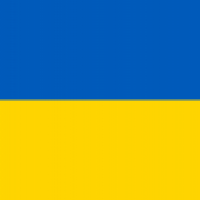Summary:
Scientists from the Ukrainian R&D Institute have developed a laboratory technique for the individual selection of antitumor drugs in the treatment of cancer patients with various types of solid malignant tumors. The technology allows increasing the clinical efficacy of the treatment of cancer patients into 2-4 times, as well as reducing the financial costs for the treatment by 3-5 times. The Ukrainian R&D institute is looking for partners to conclude license or technical cooperation agreements.
Description:
Due to the lack of effectiveness of modern standard drug treatment of malignant tumors, the relevance of individual treatment of a particular patient increases, taking into account the sensitivity of the tumor to anticancer drugs. Among antitumor drugs, cytostatics, targeted, immune drugs in standard dose regimes, activated small and ultra-small doses, as well as a polypharmacological immunocorrector (IC) can be used for anticancer therapy.
Ukrainian Research Institute proposes an individualized selection of the most effective anticancer drugs (chemo-, endocrine-, targeted, immunotherapy) is carried out using preliminary testing of the drug with the patient's blood in vitro and the evaluation of the predicted therapeutic effect. At the same time, the effect of the medicinal agent on the dynamics of the thiol-disulfide ratio (TDR) in the blood as an integral indicator of the redox balance is assessed. Considering that the TDR in the blood cells of an oncological patient has a direct correlation with the TDR in the tumor cells, the assessment of the effect of the pharmacological drug on the blood is a simultaneous indirect reflection of its antitumor effect. This technology makes it possible to predict the individual therapeutic effect of a wide range of pharmacological anticancer drugs since each of them ultimately leads to an individual dynamic effect on the TDR of the patient’s blood and tumor.
Before assigning of each course of drug treatment, the patient's blood is tested in vitro with competing drugs from various pharmacological groups (chemo-, endocrine-, targeted-, immunotherapy), among which the most effective in the optimal therapeutic dose is selected. Prediction of the individual therapeutic effect of pharmacotherapy is based on 24-72-hour monitoring of the dynamics of the thiol-disulfide ratio (TDR) in blood in vitro under the influence of the drug.
This technology can be used to form groups of patients (sensitive and insensitive to experimental pharmacotherapy) in clinical studies of new drugs.
This technology has been used in the treatment of cancer patients in Ukraine for the past 20 years.
The Research Institute is searching for medical laboratories, pharmacological companies, scientific organizations and medical institutions of oncological profile for signing the License or Technical cooperation agreement. The institution also offers access to rights for commercial use and allows the opportunity for further co-development of technology with companies from the pharmaceutical and medical sector or research institutions.
Type (e.g. company, R&D institution…), field of industry and Role of Partner Sought:
The Research Institute is searching for medical laboratories, pharmacological companies, scientific organizations, and medical institutions of oncological profile for Lcense or Technical cooperation agreement.
There are next goals of partnership with respective partners sought, exactly, for purchasing of patent, for joint scientific cooperation on the improvement of technology, for signing the License agreement.
The Institution offers access to rights for commercial use as well as the opportunity for further co-development within a license agreement to companies from the pharmaceutical and medical sector.
Stage of Development:
Already on the market
IPR Status:
Patents granted,Exclusive Rights,Copyright
Comments Regarding IPR Status:
The technology is protected by 5 patents.
External code:
TOUA20211021001








